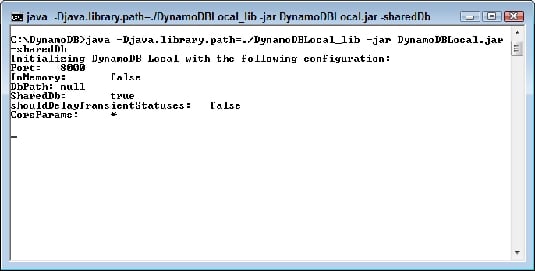
If is true, then seeding is performed after table migrations. In serverless.yml seeding categories are defined under ed. In serverless.yml add following to execute all the migration upon DynamoDB Local Start custom:ĪWS::DynamoDB::Table Resource Template for serverless.yml resources:ĭynamoDB local doesn't support TTL specification, therefore plugin will simply ignore ttl configuration from Cloudformation template. Migrations: sls dynamodb migrate Configuration # Uncomment only if you already have a DynamoDB running locally # If you only want to use DynamoDB Local in some stages, declare them here convertEmptyValues -e Set to true if you would like the document client to convert empty values (0-length strings, binary buffers, and sets) to be converted to NULL types when persisting to DynamoDB.Īll the above options can be added to serverless.yml to set default configuration: e.g. The -seed option determines which data categories to onload. seed -s After starting and migrating dynamodb local, injects seed data into your tables. migrate -m After starting DynamoDB local, create DynamoDB tables from the Serverless configuration. migration -m After starting dynamodb local, run dynamodb migrations. You must also specify -dbPath when you use this parameter. optimizeDbBeforeStartup -o Optimizes the underlying database tables before starting up DynamoDB on your computer. (Currently, this parameter introduces delays only for global secondary indexes that are in either CREATING or DELETING status.) Setting this parameter helps DynamoDB simulate the behavior of the Amazon DynamoDB web service more closely. DynamoDB can perform some tasks almost instantaneously, such as create/update/delete operations on tables and indexes however, the actual DynamoDB service requires more time for these tasks. delayTransientStatuses -t Causes DynamoDB to introduce delays for certain operations. If you specify -sharedDb, all DynamoDB clients will interact with the same set of tables regardless of their region and credential configuration.

sharedDb -h DynamoDB will use a single database file, instead of using separate files for each credential and region. For example to create /node_modules/serverless-dynamodb-local/dynamob/ you should specify -d / or -dbPath / with a forwardslash at the end. For the path, current working directory is /node_modules/serverless-dynamodb-local/dynamob. Note that you cannot specify both -dbPath and -inMemory at once. If you do not specify this option, the file will be written to the current directory. dbPath -d The directory where DynamoDB will write its database file. When you stop DynamoDB, none of the data will be saved. inMemory -i DynamoDB will run in memory, instead of using a database file. The default setting for -cors is an asterisk (*), which allows public access. You must provide a comma-separated "allow" list of specific domains. cors -c Enable CORS support (cross-origin resource sharing) for JavaScript.

Start: sls dynamodb startĪll CLI options are optional: -port -p Port to listen on.
#Download local dynamodb install
Note: This is useful if the sls dynamodb install failed in between to completely remove and install a new copy of DynamoDB local.

To remove the installed dynamodb local, run: Open a browser and go to the url to access the web shell for dynamodb local. Note: Read the detailed section for more information on advanced options and configurations. Make sure above command is executed before this. To stop DynamoDB, type Ctrl+C in the command prompt window). Start DynamoDB Local and migrate (DynamoDB will process incoming requests until you stop it. Then in serverless.yml add following entry to the plugins array: serverless-dynamodb-local plugins:Īdd DynamoDB Resource definitions to your Serverless configuration, as defined here: Npm install -save serverless-dynamodb-local


 0 kommentar(er)
0 kommentar(er)
